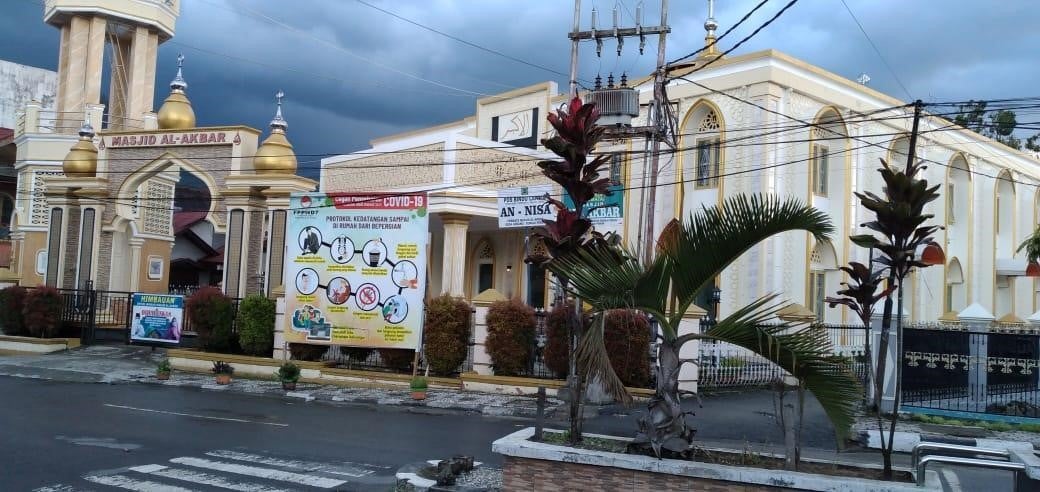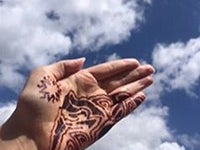Responses by Islamic Mass Organizations and Ummah in Indonesia to Reduce the Number of Covid-19 Victims
contributed by Mohammad Hidayaturrahman, 4 September 2020
As the country with the fourth highest population in the world, Indonesia is very vulnerable to a pandemic. It would be a challenge for the government to control the mobility of more than 240 million people who spread across 34 provinces and more than 500 districts / cities located on many distinct islands. Indonesia therefore faces a crucial problem in dealing with Covid-19. In addition to geographical issues, Indonesia also grapples with the heterogeneity of its population. Indonesian society is heterogeneous in terms of education, economic levels, ethnicity, religion, culture and political choices. At present, the active cases affected by Covid-19 are estimated to reach 180,000 or more.
Indonesia has the largest Muslim population in the world. The Muslim population accounts for 80% of the total population, and this has consequences for many Islamic places of worship in Indonesia. Religious activities for Muslims are frequent because of five daily prayers which are usually held in a congregation in a mosque. Indonesian Muslims also have many other religious traditions that enable Muslims to gather during ritual practices. Some examples are “tahlilan” activities when people die, as well as salvation and thanksgiving for fortune obtained. There are also routine ritual activities such as the commemoration of the birthday of the Prophet Muhammad, commemoration of Isra' mi'raj, as well as the Hijriyah new year. Indonesia also has Islamic mass organizations, including Nahdlatul Ulama, Muhammadiyah, Persatuan Islam, Al-Irsyad and so forth. There are also various “majlis ta’lim'' involving a relatively large number of worshippers.
Behavior is a response that arises due to a stimulus. The behavior discussed in this article is the behavior of Muslim mass organizations and their main figures in Indonesia in response to the Covid-19 pandemic. For instance, the Majelis Ulama Indonesia has specifically made a fatwa relating to Covid-19 which contains the obligation to isolate oneself if one had been exposed to the disease - making it haram to perform sunnah worship which may cause other people potentially be infected as well, such as tarawih prayer, Eid al-Fitr prayer and recitation with other pilgrims. Moreover, the Friday prayers have to be replaced by the Dhuhr prayer to be performed alone at home. When the Covid-19 pandemic is out of control and poses a threat to the safety of lives, Friday prayers should not be held at mosques and should be replaced instead with Dhuhr prayers at home. Likewise, other religious activities that involve the gathering of people are totally prohibited, and devotees are told to ensure that there is no direct physical contact such as shaking hands, hugging and kissing hands, and to diligently wash hands with antiseptic soap.
As for the behavior of Muslims in Indonesia facing Covid-19, the attitude generally appears to be in accordance with what is conveyed by Islamic mass organizations and Islamic leaders. This can be seen from the closure of major mosques under the coordination of the Ministry of Religion of the Republic of Indonesia, as well as mosques that stand independently and are coordinated by Islamic organizations and individuals. The mosques also should not hold Friday prayers, pray in congregations five times a day, nor do regular religious recitation. Even so, there are still a small proportion of Muslims who behave differently, by opening mosques for congregational prayers and Friday prayers, especially those in suburban, rural and remote areas. However, they also no longer hold routine recitation as was usually done before the Covid-19 pandemic. As for the activities of religious routines such as recitation, tahlilan, thanksgiving and others, they have been avoided by the Indonesian Muslims. But unfortunately, there are habits that still have not been enforced in relation to maintaining physical contact: some Muslims keep shaking hands when they meet each other even though they are accustomed to wearing masks, covering mouths, and diligently washing hands.

Figure 1. Al-Akbar Mosque in Kerinci, Jambi temporarily closed during Covid-19 pandemic. (Source: Private document, 2020)
The behavior of Muslims, Islamic leaders, and Islamic mass organizations in Indonesia in response to Covid-19 has been relatively uniform. They try to limit the spread of the disease by breaking chains of contact between devotees. As such, this has also changed the way they practice religious activities through restricting congregational activities in the mosques, both for compulsory worship and sunnah worship. The implementation of religious teachings is carried out to get a sense of security from illness and death.
Dr Mohammad Hidayaturrahman is a lecturer and researcher in the Faculty of Social and Political Sciences at Wiraraja University, Indonesia. Among the studies that have been published nationally and internationally are "Political Investors in Regional Head Elections: Political Elite Oligarchy and Mastery of Regional Resources, “Kiai of Political Relations Reconciling Politics and Religion in Indonesia", "Curse Theory Analysis on Oil and Natural Gas Resources for Madurese Citizens", as well as “ The Role of Political Investors in Regional Head Elections in Indonesia."
Disclaimer: The views and opinions expressed in this article are those of the authors and do not necessarily reflect the position of the blog editorial team or the Asia Research Institute.
South Asia | Southeast Asia | East Asia | Other Places | Hinduism | Buddhism | Islam | Christianity | Other Religions



